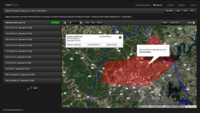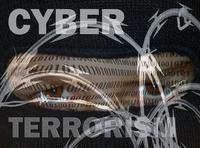-
Cyphort, a threat monitoring specialist, raises $15.5 million Series B funding
San Jose, California-based Cyphort, Inc., a company specializing in advanced threat monitoring and mitigation platform, has closed in $15.5 million Series B funding. The round was led by Menlo Park, California-based Trinity Ventures with participation from existing investors Foundation Capital and Matrix Capital. Cyphort’s platform blends multi-phase behavioral analysis, machine learning, and correlation to provide businesses with real-time detection, context, and mitigation for advanced malware attacks that bypass traditional security and first generation APT solutions.
-
-
NIST seeks public comments on updated smart-grid cybersecurity guidelines
The National Institute of Standards and Technology (NIST) is requesting public comments on the first revision to its guidelines for secure implementation of “smart grid” technology. The draft document, NIST Interagency Report (IR) 7628 Revision 1: Guidelines for Smart Grid Cybersecurity, is the first update to NISTIR 7628 since its initial publication in September 2010.
-
-
Where should U.S. radioactive waste be buried?
In the United States, about 70,000 metric tons of spent commercial nuclear fuel are located at more than seventy sites in thirty-five states. Shales and other clay-rich (argillaceous) rocks have never been seriously considered for holding America’s spent nuclear fuel, but it is different overseas. France, Switzerland, and Belgium are planning to put waste in tunnels mined out of shale formations, and Canada, Japan, and the United Kingdom are evaluating the idea.
-
-
Arkansas deploys first statewide SmartPrepare system

Arkansas uses citizen-supplied data for more efficient emergency planning and response. The service allows citizens to create secure profiles online which contain vital details about their household. Public safety officials can use the data to gain greater insight into their communities and identify potential challenges in order to prepare more effectively for disasters, allocate resources, and expedite emergency response and recovery efforts during events.
-
-
DDoS protection specialist Black Lotus raises $3.5 million
San Francisco-based Black Lotus, a DDoS protection specialist, last week announced the completion of its first institutional financing in the amount of $3.5 million. The round was led by San Francisco-based Industry Capital. The strategic investment will fund entry into new markets, where Black Lotus will deploy additional capacity and improve quality of service through peering and closer proximity to global partner networks.
-
-
Sharp increase in radioactive water leaks at Fukushima
Tokyo Electric Power(TEPCO) has reported a rise in groundwater radiation levels, saying a tank at the firm’s Fukushima plant leaked 300 metric tons of toxic water in August 2013. Water samples from wells, taken in mid-October, show a record-high concentration of beta-ray emitting substances, and a sharp increase in the presence of radioactive tritium. Japanese prime ministerShinzo Abe, in a tacit admission that Japan cannot effectively handle the continuing radiation leaks from the stricken plant, said Japan would be interested in receiving foreign help to contain widening radioactive water leaks at Fukushima.
-
-
Preventing a Bhopal-like catastrophe in New Jersey
New Jersey is home to ninety facilities which produce and store large quantities of highly toxic chemicals. A superstorm or terrorist attack could doom millions of people around southern New Jersey and eastern Pennsylvania to a Bhopal, 1984-like fate if either of these facilities and their storage tanks were affected.Typically, in the aftermath of major disasters, a blue ribbon panel is created to review preventative measures that could have been taken before the disaster. Security experts say that there is no need to wait for a post-disaster blue ribbon panel investigation to know what sensible safety measures should be implemented now.
-
-
Terrorism insurance should cover cyberterrorism: industry

The Terrorism Risk Insurance Act(TRIA) is a federal backstop designed to protect insurers in the event an act of terrorism results in losses above $100 million. Industry officials question whether cyber terrorism is covered by the program, which is administered by the Treasury Department. Industry insiders note that terrorism risks have evolved since TRIA was enacted and cyberterrorism is now a real threat. TRIA should thus not simply be reauthorized with a blanket stamp of approval; instead there should be a discussion about whether acts of cyberterrorism should be explicitly included in TRIA.
-
-
NIST releases Preliminary Cybersecurity Framework
The National Institute of Standards and Technology (NIST) on Tuesday released its Preliminary Cybersecurity Framework to help critical infrastructure owners and operators reduce cybersecurity risks in industries such as power generation, transportation, and telecommunications. In the coming days, NIST will open a 45-day public comment period on the Preliminary Framework and plans to release the official framework in February 2014.
-
-
Violin Memory: Winning over the intelligence community

Violin Memory (NSYE: VMEM) is a recently IPO’d enterprise flash memory provider that has won installations across the most demanding branches of government, particularly in intelligence and homeland security. One advantage the company holds is a partnership with Toshiba, the world’s #2 manufacturer of NAND, which reportedly gives Violin insider-access to the unpublished R&D data, allowing for a product that has steadily performed steps ahead of the competition. The partnership also allows Violin to buy NAND at special “producer-like” prices from Toshiba, which in turn has enabled Violin to price more competitively, up to 50 percent lower than other providers. What is clear is that Violin’s technology adoption is growing exponentially within the security sector and other areas where data performance cannot be compromised and is mission critical.
-
-
Cybersecurity specialist Bromium raises $40 million Series C funding
Cupertino, California-based Bromium, Inc. has raised $40 million in an Series C funding round led by new investor Meritech Capital Partners, with participation from existing investors Andreessen Horowitz, Ignition Partners, Highland Capital Partners, and Intel Capital. Bromium offers advanced malware protection and automated forensic intelligence products. Bromium’s vSentry uses Intel CPU and chipset features to hardware-isolate tasks that access the Web, attachments, and files that might contain malware, protecting the desktop by design.
-
-
Unexpected pleasures: a new airport security-check experience
If airport security checks cannot be made to move at a quicker pace, how about making them more comfortable, even pleasant? This is what a pilot project at the Dallas/Fort Worth (DFW) International Airport’s Terminal E is trying to do. SpringHill Suites by Marriott has brought its hotel experience to E18 security check point, where passengers will now be welcomed by a stylish decor, soothing wall art, vibrant lighting, and relaxing ambient music in a setting that spans the entire checkpoint area. Lounge seating at the entrance and a furnished area for customers to gather their belongings after the screening process.
-
-
Irish heritage groups sues U.K. over nuclear power plant
An Taisce, an Irish charity group promoting the preservation of Ireland’s heritage, is taking the British government to the High Court in London in December seeking a judicial review of the legality of British energy minister Ed Davey’s decision to approve the construction of a nuclear power plant just 150 miles from the Irish coast without consulting the Irish public.
-
-
Small changes in agricultural practices reduce produce-borne illness

Foodborne illness sickens an estimated 9.4 million and kills around 1,300 annually in the United States, according to the Centers for Disease Control and Prevention. Produce accounts for nearly half the illnesses, and 23 percent of the deaths. Researchers have identified some agricultural management practices in the field that can either boost or reduce the risk of contamination in produce from two major foodborne pathogens: salmonella, the biggest single killer among the foodborne microbes, and Listeria monocytogenes.
-
-
Police departments adopt sophisticated, cheap-to-operate surveillance technology

Advancements in surveillance technology have been adopted not only by the National Security Agency (N.S.A) or other federal intelligence agencies. Local police departments have also incorporated the latest surveillance technologies into their work, allowing them to track individuals for different purposes.
-
More headlines
The long view
Ransomware Attacks: Death Threats, Endangered Patients and Millions of Dollars in Damages
A ransomware attack on Change Healthcare, a company that processes 15 billion health care transactions annually and deals with 1 in 3 patient records in the United States, is continuing to cause massive disruptions nearly three weeks later. The incident, which started on February 21, has been called the “most significant cyberattack on the U.S. health care system” by the American Hospital Association. It is just the latest example of an increasing trend.
Chinese Government Hackers Targeted Critics of China, U.S. Businesses and Politicians
An indictment was unsealed Monday charging seven nationals of the People’s Republic of China (PRC) with conspiracy to commit computer intrusions and conspiracy to commit wire fraud for their involvement in a PRC-based hacking group that spent approximately 14 years targeting U.S. and foreign critics, businesses, and political officials in furtherance of the PRC’s economic espionage and foreign intelligence objectives.
European Arms Imports Nearly Double, U.S. and French Exports Rise, and Russian Exports Fall Sharply
States in Europe almost doubled their imports of major arms (+94 per cent) between 2014–18 and 2019–23. The United States increased its arms exports by 17 per cent between 2014–18 and 2019–23, while Russia’s arms exports halved. Russia was for the first time the third largest arms exporter, falling just behind France.
LNG Exports Have Had No Impact on Domestic Energy Costs: Analysis
U.S. liquified natural gas (LNG) exports have not had any sustained and significant direct impact on U.S. natural gas prices and have, in fact, spurred production and productivity gains, which contribute to downward pressure on domestic prices.
